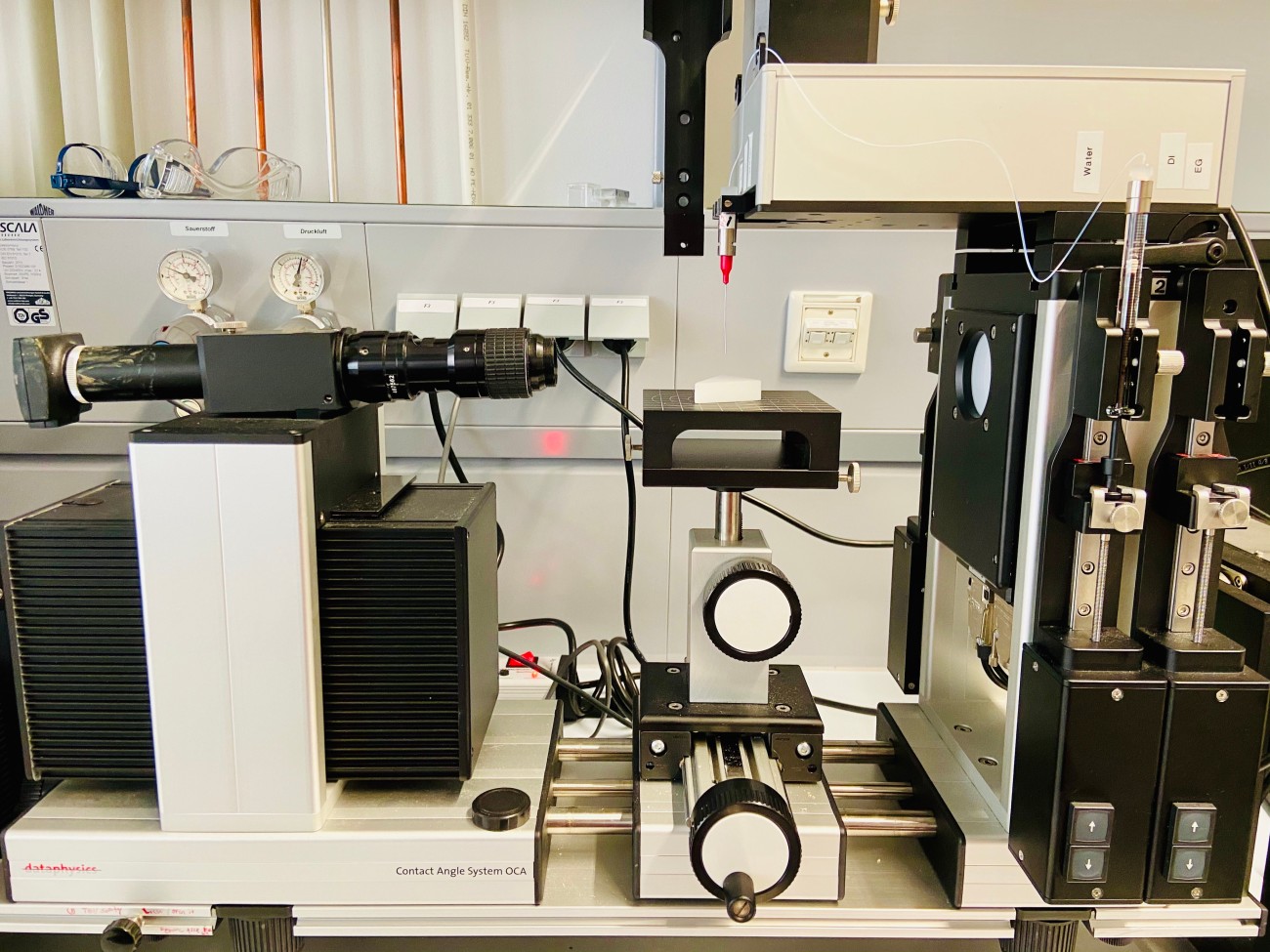M.Sc. Alexander Erb
Contact
alexander.erb@tu-...
work +49 6151 16 21922
Work
L207 206
Peter-Grünberg-Straße 16
64287
Darmstadt
Master Material Science (seit WS 2018/19).
Bachelor an der Universität Heidelberg in Physik(WS 2015/16 bis SS 2018)
Projektbeschreibung
Bio Alkohole (z.B. erzeugt durch Fermentation) werden als eine wichtige zukünftige Energiequelle gehandelt. Großen Bekanntheitsgrad haben sie durch E10 Sprit erlangt. Dennoch ist eine Messung des Alkoholgehalts während der Produktion nach wie vor sehr aufwendig. Deswegen versuchen wir mithilfe 3D gedruckter mikrofluidischer Zellen und Raman Spektroskopie die Alkoholmessung zu vereinfachen und zu beschleunigen. Die mikrofluidische Zelle dient dabei als standardisierte Messumgebung. Als Proof of Concept Projekt versuchen wir Konzentrationsgradienten in Wasser-Alkohol Gemischen zu messen.
|
| Raman spectroscopic characterisation of mass transfer and of concentration gradients in fluid mixtures |
|
| In many applications, such as in microfluidics, in printing and coating technologies, and in lab-on-a-chip devices, wetting properties play an important role. Wetting properties depend strongly on surface morphology and on the fluids. Momentum, heat and matter transfer have to be taken into account in this context. To characterise these phenomena, in this project the three-phase contact line will be characterised in microfluidic systems by Raman spectroscopy. Usually the microchannels are prepared by lithography in PDMS, but here another possibility by 3D printing the channels is tried. In this way the sample preparation is shortened and the suface modification can be obtained in the same step. Different fluid mixtured will be characterised on differently modified surfaces. The project is part of the CRC 1194, which studies the interaction between wetting and transport phenomena. |


